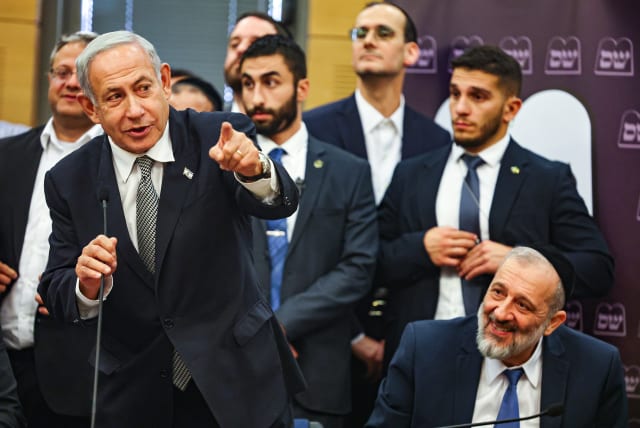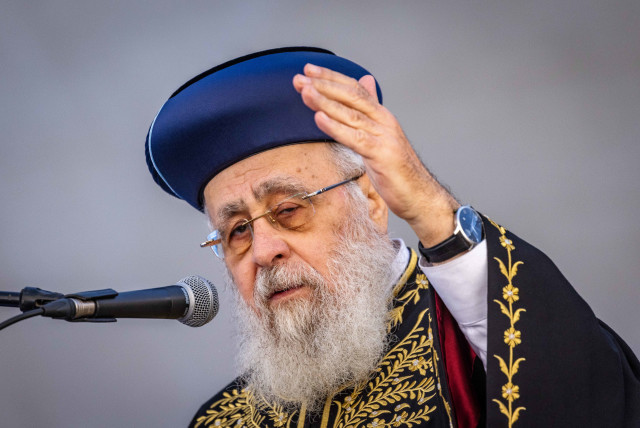Mayors demand that gov't drop plan to take over appointments of city rabbis

The 100 mayors who wrote the letter to the Religious Affairs Minister were specifically expressing their opposition to a series of directives published by the Religious Affairs ministry on April 11.
Over 100 Israeli mayors demanded on Tuesday in a letter to Religious Affairs Minister Michael Malkieli (Shas) that he cancel his plan to increase his control of a committee that elects municipal and neighborhood rabbis at the expense of the mayors themselves.
The government's initiative was first proposed as a bill in 2023 but delayed due to the outbreak of the Israel-Hamas war on October 7. The government again tried to advance the bill in March 2024, but public outcry coupled with a veto by Benny Gantz's National Unity party led to the bill being stalled once more.
However, the religious affairs ministry realized that it had the power to make many of the changes with secondary legislation alone (known as "Takanot"), which did not require Knesset approval, and published the plans on April 11.
Different cities in Israel have differing religious characters – from the ultra-orthodox Bnei-Brak to the largely secular Tel-Aviv – and accordingly, existing law gives local authorities a majority in the committee that is responsible for electing their authority's chief rabbi.
While local chief rabbis, meaning chief rabbis of cities, towns, regional councils, etc., are officially subordinate to the national Chief Rabbinate, the reality on the ground is that each local chief rabbi has broad independence to adapt religious services to the character and needs of each authority.
Government initiative first proposed this as bill, was stalled
Malkieli's secondary legislation would alter this by changing the makeup of the committees that elect the local rabbis so that the Religious Affairs Minister and Chief Rabbinate – and not the local authority leaders themselves – have a majority. It can, therefore, appoint an ultra-orthodox rabbi as the chief rabbi of Tel Aviv.
In their letter, the mayors argued that cities and towns should be able to choose rabbis who are suited to the religious character of their constituencies. Furthermore, the municipality pays the rabbi's salary, and as such, it should have the power to choose its employees.
Critics of the move have argued that Shas's motivation is to give rabbis affiliated with it positions at the municipal and neighborhood levels.
The issue has come to the forefront now since the election for Israel's Chief Rabbis and 15-member Chief Rabbinate Council are scheduled for May and July, respectively.
The mayors also opposed two other parts of the secondary legislation. The first lowered the current requirement that the committee that chooses the municipal rabbis include from at least 40% women to a third (33%), and the second was one that grants rabbis the ability to continue serving in their positions after the legal retirement age of 67.
The mayors argued that they did not see the reason for these two changes. Rabbis had influence over women residents and therefore appointment committees should have as large a representation of women as possible, and as elected officials there was no reason to give them the privilege of a delayed retirement age.
The mayors concluded their letter by saying that they would do "everything in their power" to oppose the legislation, including challenging it in court.
Jerusalem Post Store
`; document.getElementById("linkPremium").innerHTML = cont; var divWithLink = document.getElementById("premium-link"); if (divWithLink !== null && divWithLink !== 'undefined') { divWithLink.style.border = "solid 1px #cb0f3e"; divWithLink.style.textAlign = "center"; divWithLink.style.marginBottom = "15px"; divWithLink.style.marginTop = "15px"; divWithLink.style.width = "100%"; divWithLink.style.backgroundColor = "#122952"; divWithLink.style.color = "#ffffff"; divWithLink.style.lineHeight = "1.5"; } } (function (v, i) { });

